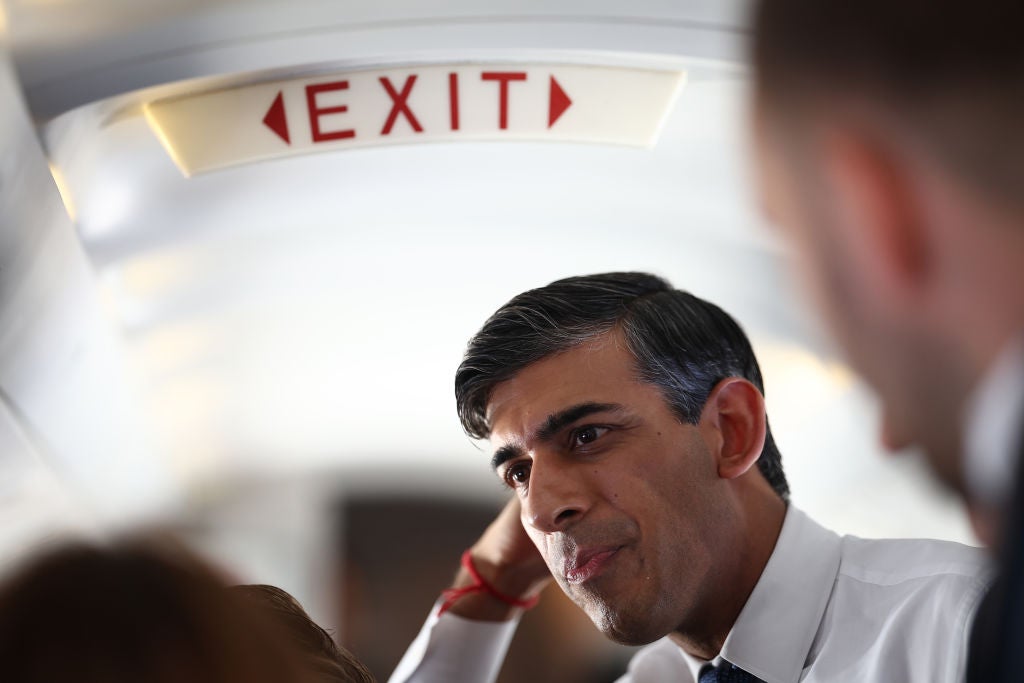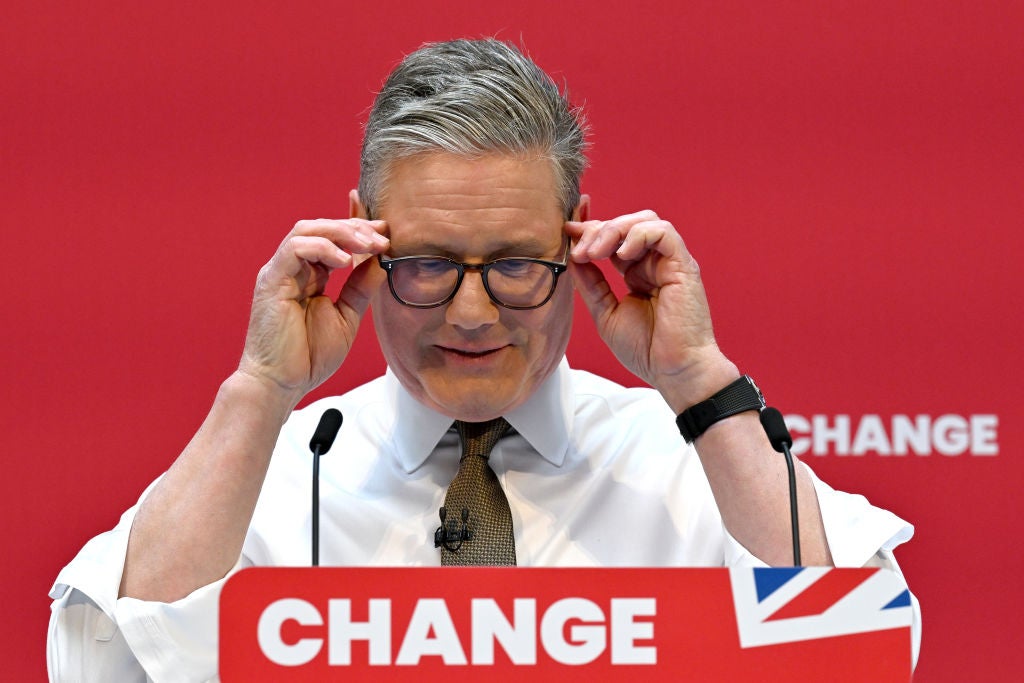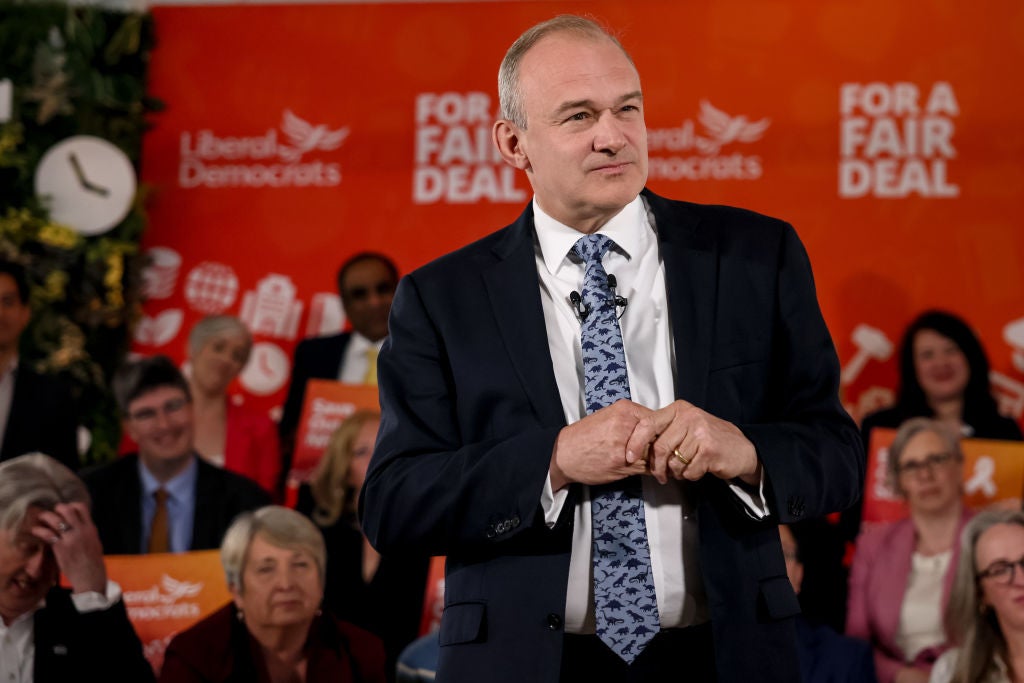
The UK will be going to the polls on 4 July, after Prime Minister Rishi Sunak called a general election on 22 May, in a surprising move. Transport policies have made many headlines over recent years, with the aviation sector coming under scrutiny from environmental, economic, and social lenses.
The civil aviation sector is a £52bn contributor to the country’s GDP, creating 960,000 jobs in total, according to the British Airport Operators Association (AOA). According to the World Travel & Tourism Council (WTTC), tourism in general, supported by aviation, contributed £237bn to the UK economy in 2022, which represented 9.5% of the country’s GDP.
Given the status of the industry in the UK economy, one could expect to see notable attention in the manifesto pledges. So, what do the main parties in the 2024 general election promise?
The Conservative Party
The Conservative Party’s 2024 manifesto barely mentions the aviation sector.
In fact, the word ‘Airport’ features zero times in the 80-page document. It’s something of a surprise, given Sunak’s bold move to cut air passenger duty during his time as Chancellor of the Exchequer – a move announced a week before COP26 in Glasgow, Scotland.
What is contained in the Tory manifesto relating to aviation is a sole paragraph, which states:
“We will support the growth and decarbonisation of our aviation sector. We will back British Sustainable Aviation Fuel through our SAF mandate, an industry-backed revenue support mechanism and investment in future aviation technology. We will support domestic flights, including through Public Service Obligations, protecting vital routes within the UK, including to islands and remote areas.”

Therefore, the Conservative party recommits to the existing pledge of Sustainable Aviation Fuel (SAF) making up 10% of all jet fuel for flights taking off from the UK by 2030. There is no mention of further decarbonisation initiatives such as Jet Zero nor mention of where the Torys stand when it comes to airport expansions, such as the controversial Heathrow expansion.
A confirmation of the 2023 Public Service Obligations reforms rounds off the paragraph, which was an update to include services that operate to and from different regions of the country, rather than just into London.
Elsewhere, under the party’s approach to reaching net zero, the current UK Government puts forward a stance of “ruling out creating further green levies”, with confirmation it will “rule out any frequent flyer levy”.
The Labour Party
If anyone was hoping for more insight from the opposition regarding civil aviation, they would be sorely disappointed.
“Labour will secure the UK aviation industry’s long-term future, including through promoting Sustainable Aviation Fuels, and encouraging airspace modernisation.”
That’s all that Labour has to say on the matter. Less than half the words the Conservative Party felt aviation was worthy of. Vague notions of security, a recognition of the growing SAF sector, and a general aim to modernise UK airspace. All very vague, lacking any detail, and failing to commit to anything actionable.

As with the Conservatives, there is no mention of a stance on airport expansions, nothing on air passenger duty, nor any industry taxes or subsidies. That’s about as much analysis of Labour’s aviation policies as anyone could reasonably glean from the 139-page document.
The Liberal Democrats
Finally, some actual policies. The Liberal Democrats’ manifesto’s aviation pledges mainly centre around disincentivising air travel, which one could argue is bad for industry, but also good for the environment.
To start things off, the Lib Dems promise to “invest in research and development to make the UK the world leader in zero-carbon flight”. As with the other two leading parties, this is a fairly broad statement, but at least acknowledges the efforts being made in the UK.
The Lib Dem manifesto pledges to reform the taxation of international flights, with an aim to “focus on those who fly the most”, although the method as to which this will be done remains to be explained. A similar policy put forward is the introduction of a new “supertax” on private jet flights, and removing the VAT exemptions for private, first-class and business-class flights.
These policies are all clear methods to disincentivise flying and to target those who fly the most financially. The manifesto also states that the Lib Dems will require airlines to show the carbon emissions for domestic flights compared to the equivalent rail option at booking. This evokes the same concept of nutritional information on food labels, and it’s hard to argue that it isn’t a broadly useful, pro-consumer policy to include in a manifesto. So, chapeau to the Lib Dems on that one.

Following France’s example, the manifesto commits to banning short-haul domestic flights where a direct rail option taking less than 2.5 hours is available for the same journey unless planes are fuelled by alternative means (ie, non-fossil fuels).
The only major journey this would currently affect in the UK is travelling between Manchester and London, a railway service operated by Avanti West Coast, which has had a notable history of struggles to operate a competent service. If the Lib Dems want to mirror the French policy, it will require investment in not just rail, but high-speed rail in particular. So, on the face of it, a noble policy, but pragmatically speaking, a UK domestic short-haul flight ban is unlikely.
The Lib Dem manifesto also places a moratorium on “net airport expansion” until a national capacity and emissions management framework is in place. The party opposes the expansion of Heathrow, Gatwick, Luton, Stansted or London City airports and any new airport in the Thames Estuary. These policies are all broadly in line with a recommendation of the Climate Change Committee, which advises the UK Government.
Elsewhere, the Lib Dems vow to seek to agree on partnerships or associations with EU agencies and programmes, citing the European Aviation Safety Agency as the lead example.
The Green Party
As expected, when it comes to aviation, the Green Party’s manifesto focuses on reducing the number of people flying. The manifesto cites the fact that the aviation sector is one of the fastest-growing sources of carbon emissions, and so similarly to the Lib Dems, the Green Party manifest states that Green MPs will campaign to disincentivise air travel where possible.
The manifesto says Green MPs will campaign for frequent-flyer levy, a ban on domestic flights for a journey that would take less than three hours by train compared to the Lib Dems two hours and thirty minutes (which still really only affect London–Manchester journeys), and to halt any airport expansions.

The manifesto also states that Green MPs will fight for an end to the “implicit subsidy” for flying that results from kerosene being exempt from fuel duty: campaigning for the carbon tax to apply to all kerosene for aviation sold in the UK.
Elsewhere, the Green Party manifesto pledges to fight for investment in skills and training “so that aviation and airport workers can move into rewarding alternative jobs” if the aviation sector declines, resulting in a shrinking workforce.



